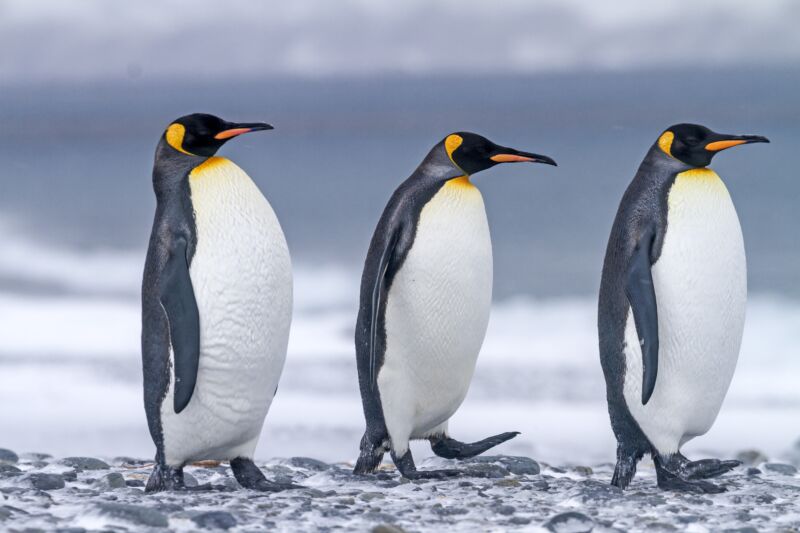Penguin poop creates a buttload of laughing gas, researchers find

We could all use a good laugh about now—and a whiff of penguin poop is certainly one way to get it.
Gobs of guano from king penguins in the sub-Antarctic give rise to comical clouds of nitrous oxide—aka laughing gas—according to a recent study published in the journal Science of the Total Environment.
And—as if the wobbling, forever formally attired birds weren’t already amusing enough—the force of their farcical feces is enough to knock someone down with a tail feather, the researchers say.
“After nosing about in guano for several hours, one goes completely cuckoo,” lead author Bo Elberling noted in a statement. “It is truly intense.”
In their study, Elberling—a professor in the University of Copenhagen’s Department of Geosciences and Natural Resource Management—and colleagues looked at how penguin activity on the sub-Antarctic island of South Georgia influences greenhouse gas emissions, which include nitrous oxide. The island is home to the largest population of king penguins in the world, with a recent estimated count of 150,000 breeding pairs.
The researchers found that areas with high penguin activity had a 120-fold spike in nitrous oxide over more sober spots on the island. That amount of entertaining emissions is about a hundredfold higher than that of a freshly fertilized Danish farm field, Elberling noted.
But turds from the tuxedo-clad wobblers don’t give rise to uproarious gas on their own. Their guano, as squirted onto the sub-Antarctic soil, is loaded with nitrogen-containing compounds from the penguins’ meals of krill and fish. After the splat, soil bacteria convert that nitrogen content to nitrous oxide, transforming butt-bursting guano into gut-busting clouds.
To add to the delight, Elberling notes that the guano giggles aren’t particularly problematic for the planet overall. “Nitrous oxide emissions in this case are not enough to impact Earth’s overall energy budget,” he said. But “our findings contribute to new knowledge about how penguin colonies affect the environment around them, which is interesting because colonies are generally becoming more and more widespread.”
So far, the penguins affects include some much-needed comic relief—something we could certainly use more of.
https://arstechnica.com/?p=1678440